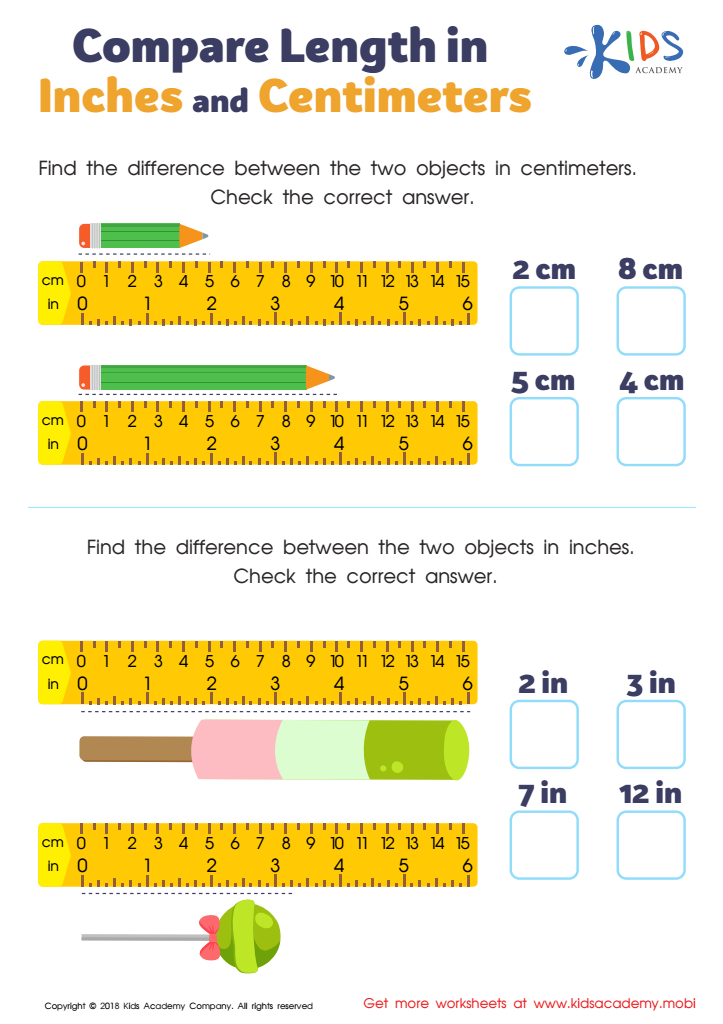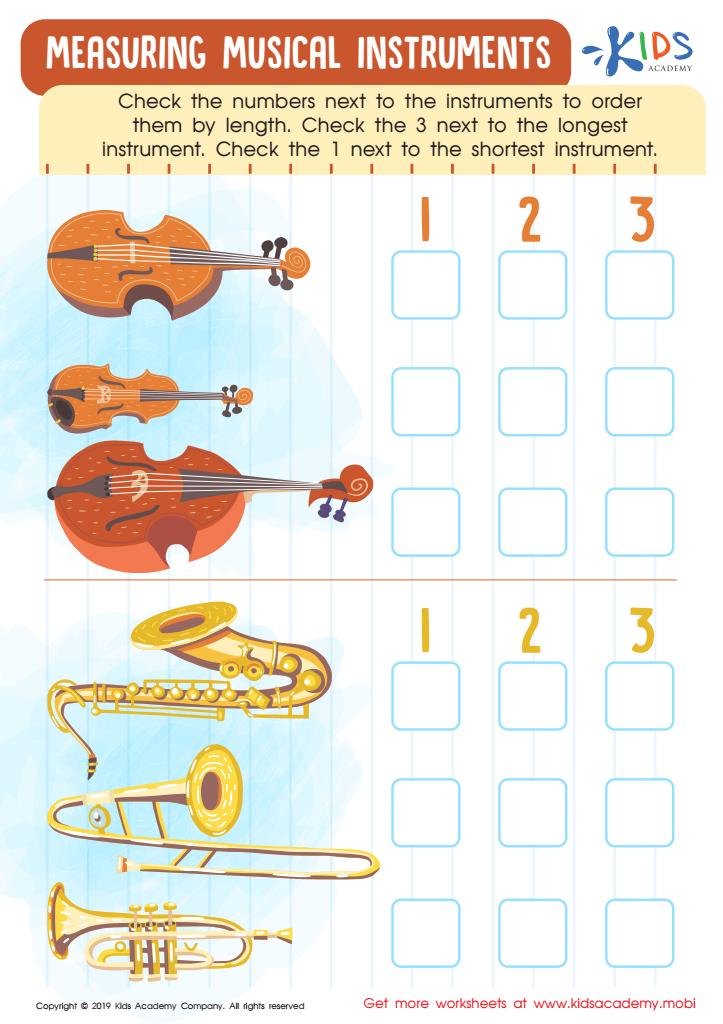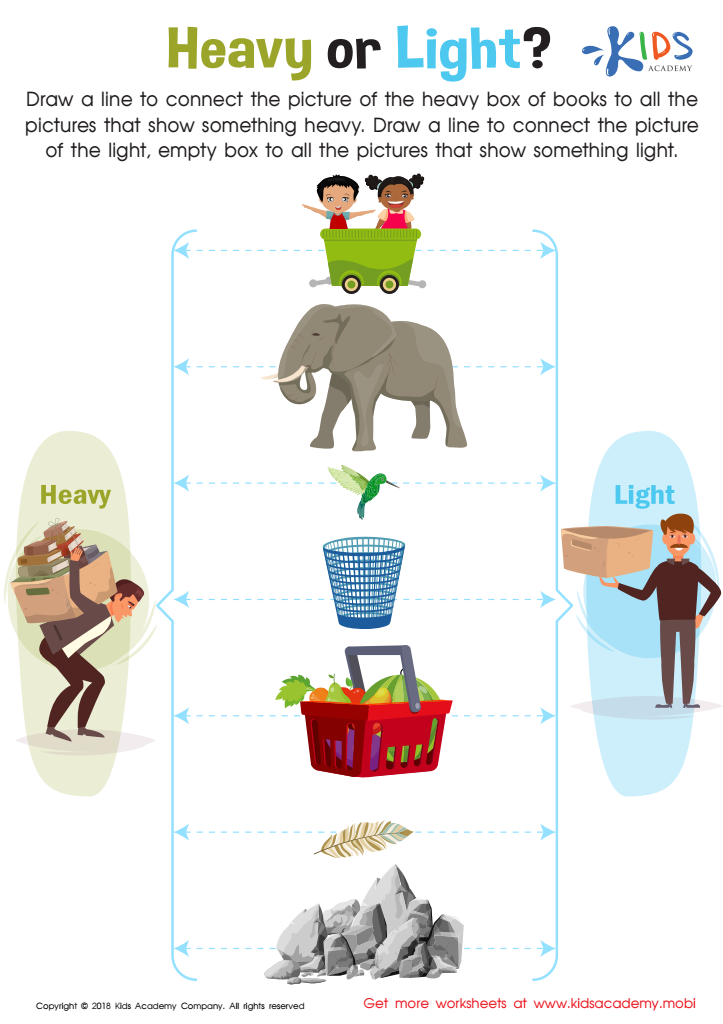Enhancing observation skills Measurement Worksheets for Ages 4-7
3 filtered results
-
From - To
Discover our "Enhancing Observation Skills Measurement Worksheets" designed for children ages 4-7. These engaging and interactive worksheets help young learners develop essential observation skills while exploring measurement concepts. Through fun activities, kids will refine their abilities to notice details, compare sizes, and understand the importance of measurement in everyday life. Our thoughtfully crafted resources encourage critical thinking and curiosity, making learning enjoyable. Perfect for home or classroom use, these worksheets aid in building a strong foundation in measurement, supporting early math skills, and promoting cognitive development. Encourage your child's growth and confidence with hands-on learning that lasts a lifetime!


Compare Length in Inches and Centimeters Worksheet


Measuring Musical Instruments Worksheet


Heavy or Light? Worksheet
Enhancing observation skills in young children aged 4-7 is essential for their developmental growth, and it is crucial for both parents and teachers to prioritize this skill. Observation skills enable children to notice details in their environments, understand cause-and-effect relationships, and engage more fully with the world around them. This foundation lays the groundwork for critical thinking and problem-solving abilities that they will use throughout their lives.
For educators, fostering stronger observation techniques can lead to more effective teaching strategies. When children learn to observe carefully, they are better equipped to engage in hands-on experiences, participate in science and arts-related activities, and develop social skills through more empathetic interactions with peers. Such engagement also leads to increased curiosity and a lifelong love of learning.
Parents play a vital role by creating opportunities for observation at home, whether through nature walks, cooking, or storytelling. Encouraging children to describe what they see and ask questions sparks their thinking and language skills.
By nurturing observation skills, adults help children become independent learners, better prepared for the academic challenges ahead. Ultimately, investing in observation abilities fosters children's cognitive development, emotional intelligence, and overall success in school and beyond.

 Assign to My Students
Assign to My Students
















